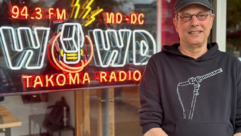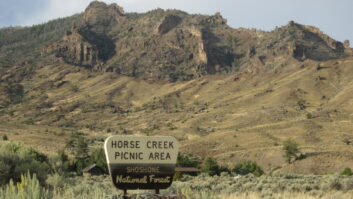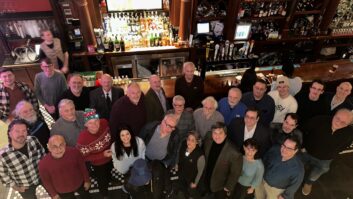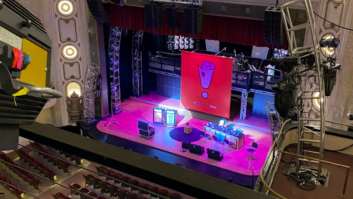
The FCC Media Bureau in September denied the so-called “Tell City waiver” request to move an FM translator farther than rules normally allow.
Many eyes had been on that request. Cromwell Group CEO Bud Walters, one of the parties who filed the petition, thought the waiver could have provided a model for the FCC to offer quick relief to other AM owners. Other parties supported the request including NAB, Emmis Communications, the Minority Media and Telecommunications Council, SESAC and iBiquity Digital.
The MMTC asked the full commission to set aside the Media Bureau decision and grant the waver, saying under the agency’s rules, it has until Oct. 29 to reverse the decision.
At the fall Radio Show in Indianapolis shortly before the decision was announced, Audio Division Chief Peter Doyle said that in general, the bar for waiver approval is rising as the FCC works through a backlog of radio applications.
BACKGROUND
In November 2012, Christian not-for-profit Way Media asked for a minor change to FM translator W218CR in Central City, Ky. on 91.5 MHz to Tell City, Ind.
Way wanted to move the translator and change its frequency to 103.7 MHz, where it would rebroadcast Hancock Communications’ oldies WTCJ(AM), heard at 1230 kHz on the AM dial. Hancock is part of The Cromwell Group. The translator move from Kentucky to Indiana would be 65 miles, and the new location would not have overlapped with WTCJ’s existing 60 dBμ contour.
At the same time, Way and Hancock filed an application asking the commission to reassign the translator from Way to Hancock and said the deal’s closing hinged on the FCC granting the move.
The broadcasters were asking the commission to allow a translator to relocate farther in a single step than is now allowed. They’d need a waiver of minimal miles radius calculations; specifically, they asked the Audio Division to expand the scope of a previous decision to include translator moves that originate anywhere within an AM station’s 0.025 mV/m interference contour.
Way and Cromwell said the current rule had an “outdated public interest benefit” and the change should be considered in the interest of AM revitalization. They said a waiver rather than a rulemaking was appropriate because it “does not behoove the FCC to use rule making resources in tweaks to its existing rules if doing so would only benefit a limited class of broadcasters.”
They further felt the waiver request had “practical, workable limitations,” namely the translator’s “existing transmitter site is within the 0.025 mV/m interference contour of the primary AM station; and the move is not to an LPFM spectrum-limited market.”
MAJOR CHANGE
In denying the waiver, Doyle wrote that the move would constitute a major, not minor, change. To qualify as the latter, the FCC requires that the 60 dBμ contours of the existing and proposed FM translator facilities overlap.
Waivers in general require a “high hurdle” for approval, according to Doyle. He said the broadcasters “fail to identify any special circumstances in this case that would warrant a deviation from the general rule. To the contrary, the waiver request and accompanying letters make clear that the waiver, if granted, would be so widely applicable as to be a general boon to the AM industry. The particular limitations noted by the parties do not create special circumstances such as would justify a waiver; rather, they appear to be the types of parameters that would typically define a rule of general applicability.”
Doyle suggested this issue would be more appropriately considered as part of the pending AM revitalization rulemaking proceeding.
In response, Commissioner Ajit Pai stated he was disappointed. Granting the waiver request would have made it easier for AMs to obtain FM translators. “This step would have provided immediate relief to AM broadcasters, which is why the waiver request received widespread support from broadcasters” as well as the MMTC, he said. The decision highlights the need for the commission “to take immediate action to help AM radio” and that it’s “critical that we open a window for AM broadcasters to apply for FM translators.”
The agency is considering opening such a window as part of its AM revitalization proceeding. Pai said during the Radio Show in Indianapolis that he hopes for a window no later than 2015.
Should the commission OK a special FM translator application window, it could move quickly to implement it, Doyle said. He told attendees, “We’re very confident we can turn those applications into construction permits very quickly.”
Asked by an attendee how long broadcasters can count on being AM owners, Doyle said, speaking personally, “AM is a terrific medium. The commission is very sincere about trying to do what we can.”
Pai, meanwhile, is urging the agency to look at other ideas in the long term, like possibly authorizing all-digital AM and determining whether to ease skywave protections. “AM radio is where Democrats and Republicans can come together,” he said.











